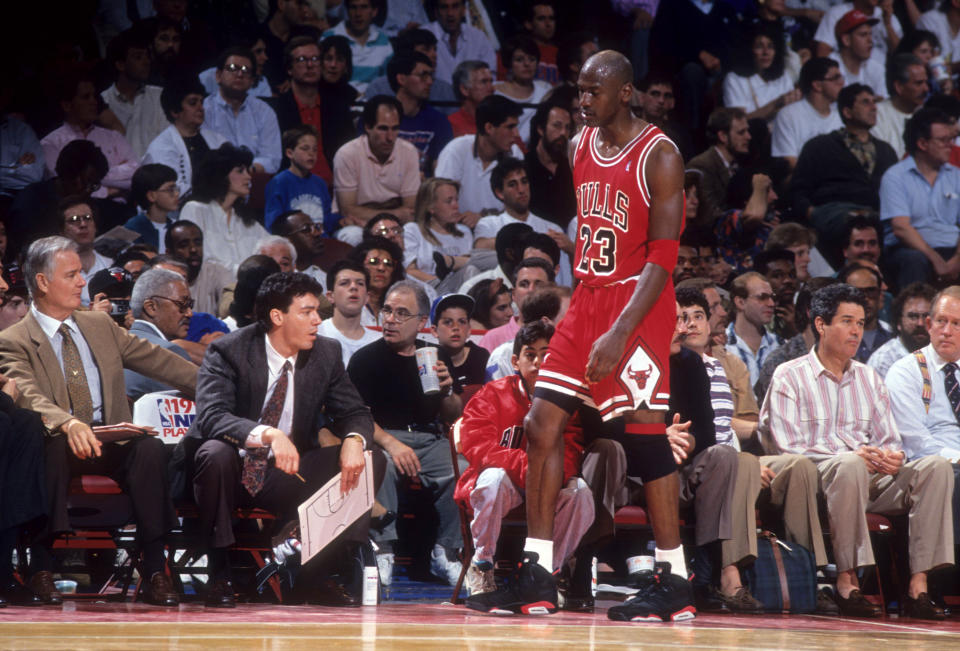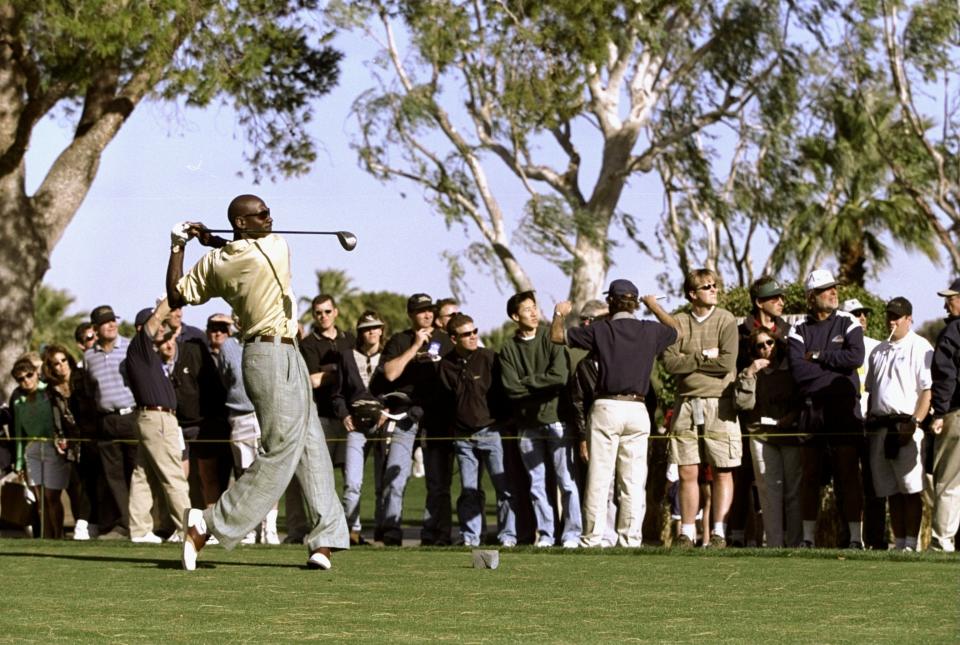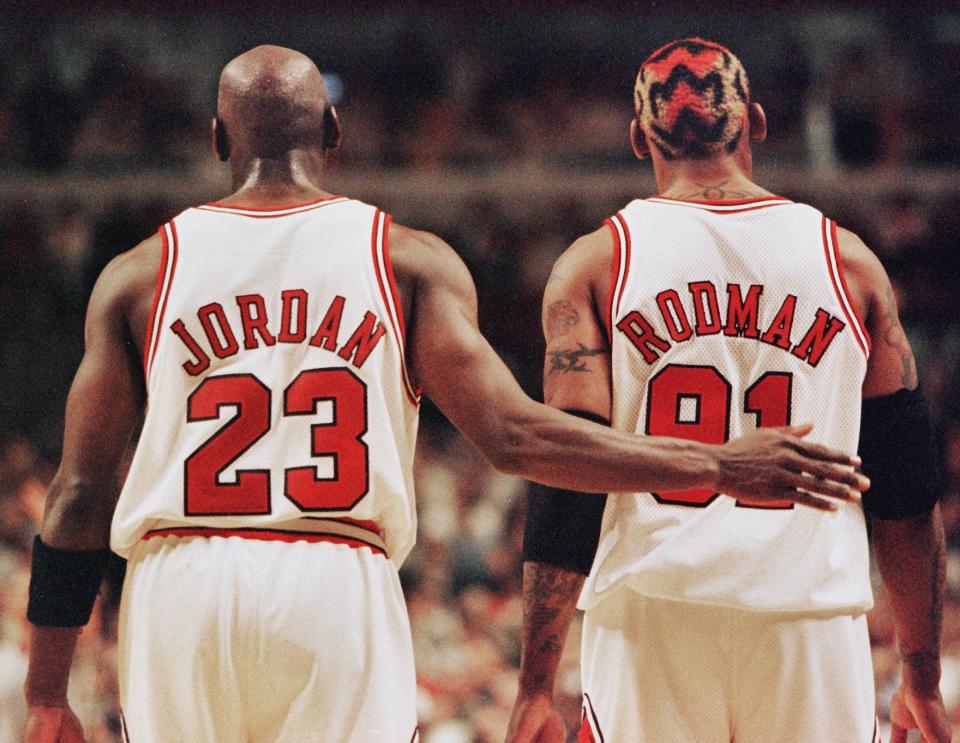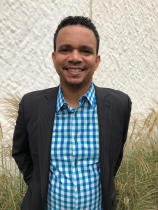5 things you might learn from 'The Last Dance' Michael Jordan documentary
The basketball gods delivered some good news last month, when ESPN announced “The Last Dance,” the 10-part documentary series on Michael Jordan and the 1997-98 Chicago Bulls, would debut on April 19 instead of its original June release date.
The way we consumed media was different during Jordan’s prime. Local newspapers served as your portal into the daily world of a team’s inner workings and its star players. Wanted to know more about a high-profile athlete? Books were your best bet in trying to peel back the layers and discover that little nugget of knowledge or what really made a guy tick. Because of that, it was sometimes hard to separate fact from fiction around the most popular basketball player of all time. “The Last Dance” attempts to fill in those gaps throughout Jordan’s legacy while providing the (sometimes petty) perspective from the man himself and others surrounding the Bulls.
Yahoo Sports has watched the first eight episodes of “The Last Dance” and these five stories — some new, some forgotten — surrounding Jordan will for sure be topics of discussion over the next five weeks.
Jordan’s first introduction to the ‘Bulls traveling cocaine circus’

It didn’t take long for Michael Jordan to get his first exposure to the drug scene that was prevalent throughout the NBA in the 1980s. Dubbed the “Bulls traveling cocaine circus” by journalist and “The Jordan Rules” author Sam Smith, Jordan recalls a run-in during the preseason of his rookie campaign where he got a first-hand look at what life on the road was like.
“Look, guys were doing things I didn’t see [before],” Jordan said in “The Last Dance.” “I had one event, preseason … I think we were in Peoria. It’s in a hotel, so I’m trying to find my teammates. So I start knocking on doors and I get to this one door and I knock on the door and I could hear someone say, ‘Shh, shh, shh, someone’s outside.’ And then you hear this deep voice say, ‘Who is it?’ I say, ‘MJ.’ And then they all say, ‘Ah [expletive], he’s just a rookie, don’t worry about it.’ So they open up the door, I walk in and practically the whole team was in there. And it was like things I’ve never seen in my life as a young kid. You got your lines over here, you got your weed smokers over here, you got your women over here. So the first thing I said was, ‘Look, man, I’m out.’ Because all I can think about is if they come and raid this place right about now, I am just as guilty as everybody else in this room. And from that point on, I was more or less on my own.”
Welcome to the NBA, rook.
Jordan’s fight for his father’s attention

Michael Jordan’s bond with his late father, James, has been documented throughout his career, but as one of five kids growing up in Wilmington, North Carolina, their relationship wasn’t always as strong. In fact, Michael revealed in “The Last Dance” that he was competing in his mind with his older brother, Larry, for the love and admiration of their father. “I don’t think from a competitive standpoint I would be here without the confrontations with my brother [Larry],” Jordan said. “When you come to blows with someone you absolutely love, that’s igniting every fire within you. And I always felt I was fighting Larry for my father’s attention.”
The competition naturally spilled onto the backyard basketball court and Larry — not Michael — was considered the better basketball player at the time in the eyes of James.
“We used to compete an awful lot in the backyard,” Larry Jordan said in “The Last Dance.” My brothers [Michael and James Jr.] hated losing, but not on the same level like me. Because if you beat me back then, we had to fight. That’s just the way I was.”
Jordan failed to make the varsity basketball team as a 5-foot-10 sophomore at Laney High School. In the fall, he returned as a 6-foot-3 junior and his basketball career took off.
“When you’re going through it, it’s traumatic because I want that approval, I want that type of confidence,” Jordan said. “So my determination got even greater to be as good, if not better, than my brother.”
Jordan knew he was going to quit the NBA and play baseball in 1992

Michael Jordan’s sudden NBA retirement in 1993 might have been more planned than we all thought — and it had nothing to do with the urban legend that NBA commissioner David Stern suspended Jordan for gambling. “Rare Air” author Mark Vancil recalls Jordan telling him nearly a year prior to his retirement that he was set to walk away from the NBA and “shock the world” by playing baseball.
“It was the summer of ’92 and it’s the Dream Team summer,” Vancil said in “The Last Dance.” “You could tell he was really tired. As tired as he looked and as beat up as he looked, I said, ‘What are you going to do?’ There’s a long pause and he said, ‘I’m going to shock the world. I’m going to quit and go play baseball.’”
Jordan’s motivation to play one more season? The 1992 Summer Olympics and wanting to accomplish the one thing Larry Bird and Magic Johnson failed to do — win three NBA championships in a row.
Jordan’s last conversation with his father prior to the elder Jordan’s July 1993 murder was about going to play baseball, which was a dream of his dad’s. Three months later, Jordan retired at the age of 30 before appearing back in the public eye as a member of the Chicago White Sox organization in February 1994.
Jordan skipped visiting The White House to gamble with a drug dealer

Michael Jordan was ahead of the curve when it comes to athletes skipping out on visiting the White House. After the first Bulls championship in 1991, Jordan was a no-show as his teammates shot baskets on the South Lawn with President George H.W. Bush. At the time, no reason for Jordan’s absence was given and the story later developed that a previously scheduled family vacation was the excuse. In fact, Jordan was golfing (and gambling) with James “Slim” Bouler, a drug dealer who would eventually be convicted for money laundering. The federal government seized a check from Jordan to Bouler for $57,000. Jordan originally claimed the check was for a loan but later testified in court that the money was for what he had lost gambling on golf with Bouler.
“It was not represented as a loan at all,” Jordan said, via the New York Times. “It was my immediate reaction to the media after a game to save embarrassment and pain, and the connection to gambling.”
It wasn’t the only golf betting story connected with Jordan. In 1993, former San Diego Sports Arena general manager Richard Esquinas alleged in a book that Jordan owed him $1.25 million from gambling on golf.
“Richard Esquinas … we met from a third party,” Jordan said in “The Last Dance.” “I’m actually playing golf with people all the time now and if they want to gamble, we gamble. The characters of those individuals … I find out later what kind of people I was playing with. I learned that lesson. But the act of gambling? I didn’t do anything wrong.”
Jordan traveled to Las Vegas to bring back Dennis Rodman

Before he was flying back and forth between Salt Lake City and Las Vegas during the 1998 NBA Finals, Dennis Rodman received permission from the Chicago Bulls to clear his mind in Sin City for 48 hours during the regular season.
With Scottie Pippen missing the first 35 games of the season while recovering from a foot injury, Rodman’s role was elevated playing alongside Jordan. But after Pippen returned in January 1998 and slid back into the role of Jordan’s sidekick, Rodman’s behavior and demeanor changed. “When Scottie was out, Dennis was a model citizen, to a point where it was driving him [expletive] insane,” Jordan said on “The Last Dance.” Rodman convinced coach Phil Jackson that he needed a vacation to “let loose” and was given permission to head to Las Vegas for 48 hours.
“He did not come back on time,” Jordan said. “We had to go get his ass out of bed, and I’m not going to say what’s in his bed, where he was, blah, blah, blah.”
“There’s a knock on the door and it’s Michael Jordan,” Rodman’s ex-wife, Carmen Electra, said. “I hid. I didn’t want him to see me like that so I’m hiding behind the couch with covers on me.”
“Dennis came back and joined the team and that’s the way it went that year,” Phil Jackson said.
More from Yahoo Sports:


